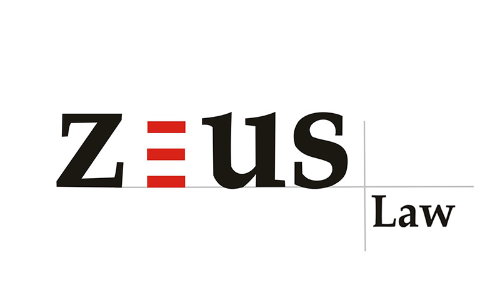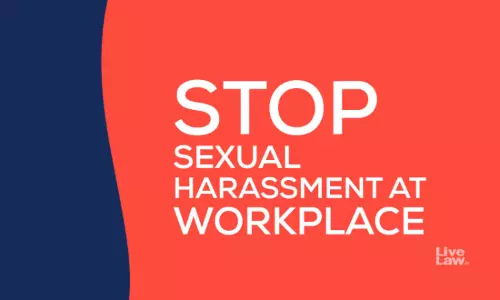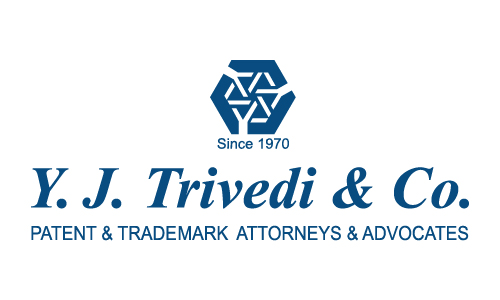Law Firm Articles
Mitigating Deepfake Threats: How Existing Laws Can Tackle Misuse
The controversies surrounding the morphed media of influential figures such as Alia Bhatt, Katrina Kaif, Rashmika Mandanna, and Sachin Tendulkar are rooted in the misuse of deepfake technology. These incidents have now become commonplace, raising alarms about the unethical and illegal uses of Deepfake technology. Despite government warnings, the issue continues to persist, prompting concerns about the integrity of the information we see online and the rights of affected parties. To...
High Courts & Eviction Of Tenants Through Writs
The Writ jurisdiction of Supreme Court or High Courts (Article 32 and 226 of the Constitution of India, respectively) can be invoked for enforcement of Fundamental Rights. While Article 32 guarantees the right to move to Supreme Court for enforcement of fundamental rights conferred under Part III of the Constitution - for directions or orders or writs including writs in the nature of habeas corpus, mandamus, prohibition, quo warranto and certiorari for enforcement of such rights, Article...
IBBI Proposes Amendments To IBBI (Insolvency Resolution Process For Corporate Process) Regulations, 2016 In Relation To Rights Of Creditors To Enforce Guarantees
The Insolvency and Bankruptcy Board of India (“IBBI”), i.e. the insolvency regulator has proposed by way of a discussion paper dated June 19, 2024, certain amendments to the Insolvency and Bankruptcy Board of India (Insolvency Resolution Process for Corporate Process) Regulations, 2016 (“CIRP Regulations”). One of such amendments proposes that the resolution plan submitted by a resolution applicant shall not prevent the creditors from enforcing their rights against the guarantors of the...
Implications Of Draft Prudential Framework For Income Recognition, Asset Classification And Provisioning Pertaining To Advances Issued By The RBI On HAM Projects
A lot has been spoken about the potential detrimental effects of RBI's draft prudential framework applicable to financing of project loans released on May 3, 2024 (“Draft Guidelines”) on various sections of the economy. While the Draft Guidelines were issued to address the underlying risks associated with financing of projects by providing an enabling framework for the regulated entities, almost all affected players were quick to react, and react they did rather scathingly, in the...
Unveiling Disparities: A Deep Dive Into India's Child Custody And Visitation Laws
Child custody battles are often the emotional epicenter of legal proceedings, especially in cases of divorce or judicial separation in India. Yet, the lack of clear, uniform guidelines for determining custody and visitation rights has turned these proceedings into a labyrinth of confusion and unpredictability. Families find themselves at the mercy of judicial discretion, unsure of the outcome and the impact it will have on their children's future. There is a pressing need for...
The Power Of Community Mediation
Justice is, in a key measure, representative of the manner in which we choose to resolve the conflict. An adjudication by following an adversarial process followed by further processes or a mutual acceptance by following a collaborative process and resolving the conflict. Our inner peace holds the key to outer peace. Access to justice is a key aspect in any successful democracy. Our struggles with bringing the justice delivery system to the doorstep of a citizen have been legendary.One key...
Decade Of The POSH Law: Analysis Of Reporting Trends And Low Compliance
The Prevention of Sexual Harassment of Women at Workplace (Prevention, Prohibition and Redressal) Act (also known as POSH Act) was enacted in India in the year 2013 with an intent to protect and promote safety of women in the workplace, indicating a momentous turning point in the ongoing struggle to achieve gender equality. This landmark legislation came into effect to provide a robust and effective redressal mechanism for victims of sexual harassment, alongside related matters.Sexual harassment...
Unraveling Oppression And Mismanagement Under The Companies Act, 2013
The Companies Act, 2013 (“CA, 2013”) is a keystone legislation which has been enacted with an aim of strengthening the corporate governance and to protect the interest of the stakeholders of a corporate entity. The provisions of Section 241-246 under Chapter XVI of the CA, 2013 are a self-contained code dealing with the subject of oppression and mismanagement. CA, 2013 offers protection and redressal to minority shareholders and members of the company from the oppressive actions and...
Special Valuation Branch- Need Of The Hour Is Completing Investigation In Time Before It Loses Its Importance
A lot has been written about SVB, about its functioning, efficiency in disposal of matters pending before it. The expectation of getting a timely decision from SVB is still a dream for many. The time and energy spent by the stake holders is not resulting in speedy disposal or wiping out the huge pendency with SVB.Special Valuation Branch (SVB) is a branch which specializes in investigation and assessment of transactions between related persons i.e. when Buyer and Seller are related. SVB has...
Can A Sale Deed Be Cancelled By The Sub-Registrar Registering The Same
Sale of an immovable property, as per the Transfer of Property Act, 1882, is transfer of ownership of the property in lieu of the sale consideration. A sale is concluded when a sale deed is executed and registered by the seller in favour of the buyer, thereby creating rights, title and interest in favour of the buyer.Several states across the country have issued circulars vesting powers with the registering authority to cancel the sale deeds where the execution / registration of sale deed has...
Overcoming Obstacles: Securing Intellectual Property Rights For CRI-Based Inventions In India
The term "computer related inventions" refers to ideas that employ computers, computer networks, and other programmable devices. They also include ideas that include one or more aspects that are fully or partially realized through the use of a computer program or programs. The most known CRI-based inventions are Artificial intelligence (AI), blockchain, and IoT (Internet of Things).Artificial intelligence is the use of computers and other devices to simulate human decision-making and...
Unveiling The Strategic Tapestry: The Nexus Between Intellectual Property Rights And Investor Attractiveness
In the intricate realm of modern business dynamics, Intellectual Property Rights (IPR) have emerged as a linchpin, wielding a profound influence on a company's allure to investors. This article delves into the multifaceted impact of strong IPR presence within a company, scrutinizes the types of IPR that most captivate investors, and elucidates a comprehensive array of strategies that companies can deploy to safeguard and augment the value of their intellectual assets.The Significance of Strong...











